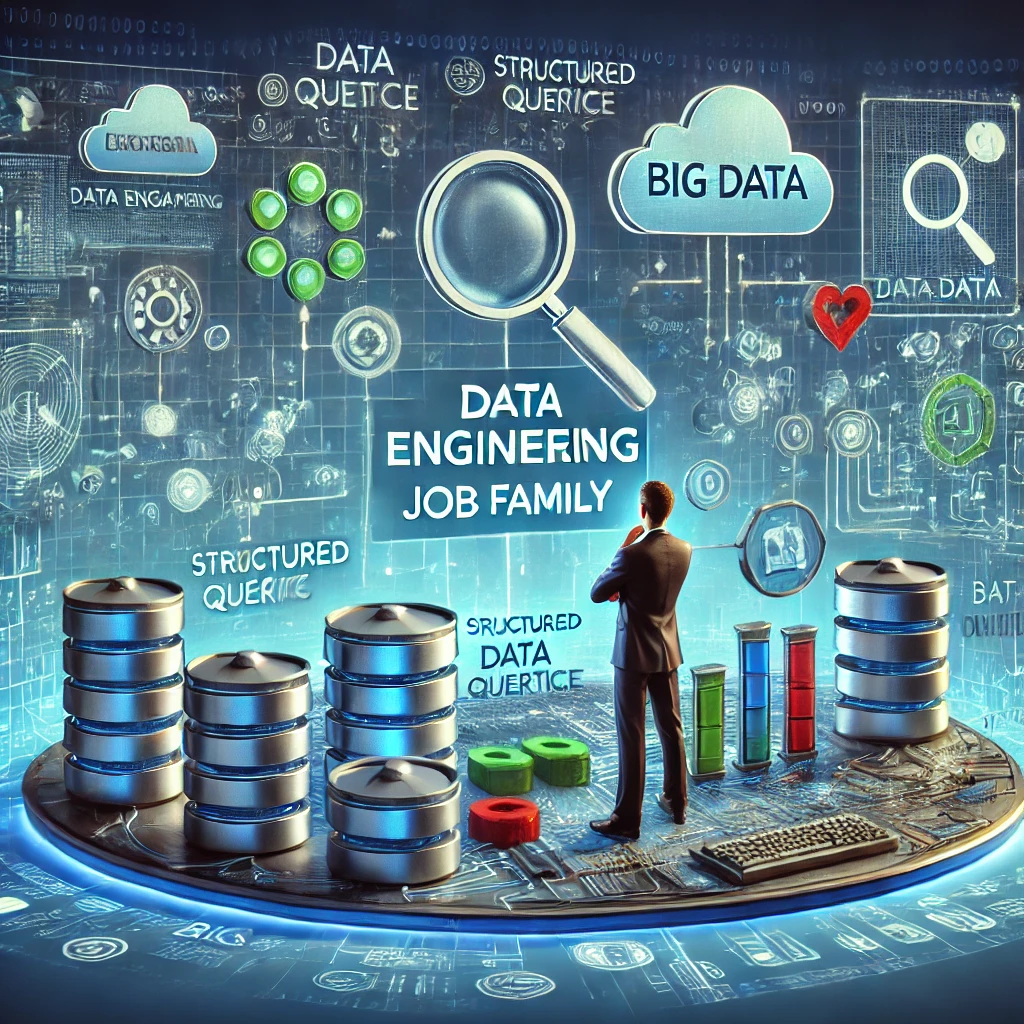Overview of the Data Science Roles and Job Family
The Data Science Roles and Job Family provides a structured career path for professionals specializing in data analytics, machine learning, artificial intelligence, and big data processing. As organizations increasingly rely on data-driven decision-making, Data Science professionals play a critical role in transforming raw data into actionable insights.
This job family spans from foundational roles in data analysis and engineering to advanced expertise in AI research, decision science, and machine learning operations.
Key Roles and Career Progression
Data Science roles follow a structured competency-based progression, assessed through LEAP Assessments, helping employers make informed hiring and development decisions.
Entry-Level Roles
Data Analyst – Collects, cleans, and interprets structured data to provide actionable insights.
Key Skills: SQL, Excel, statistical analysis, data visualization (Tableau, Power BI).
Business Intelligence (BI) Analyst – Designs and maintains data-driven decision-making systems.
Key Skills: Data warehousing, ETL processes, KPI reporting.
Junior Data Scientist – Builds basic machine learning models and conducts exploratory data analysis (EDA).
Key Skills: Python/R, ML algorithms, Pandas, NumPy, Scikit-learn.
Data Engineer Intern – Supports data pipeline and infrastructure development.
Key Skills: ETL tools, database management, cloud computing basics.
Machine Learning Intern – Assists with developing predictive models and preprocessing techniques.
Key Skills: Feature engineering, model evaluation, Python, TensorFlow.
Early-Career Roles
Data Engineer – Designs and manages scalable data infrastructure.
Key Skills: Big data tools (Hadoop, Spark), data integration, automation.
Junior Machine Learning Engineer – Develops and deploys machine learning models.
Key Skills: Model tuning, APIs, containerization (Docker, Kubernetes).
Data Scientist – Solves business problems using data-driven approaches and ML models.
Key Skills: Predictive modelling, A/B testing, cross-validation.
Quantitative Analyst (Quant) – Develops financial models and risk management tools.
Key Skills: Time-series analysis, stochastic processes, R/Matlab.
Research Data Analyst – Analyzes large datasets for academic or industry research.
Key Skills: Hypothesis testing, experimental design, Python/R.
Mid-Career Roles
Machine Learning Engineer – Creates robust, scalable machine learning systems.
Key Skills: Deep learning (TensorFlow, PyTorch), distributed training, MLOps.
Applied Data Scientist – Applies AI/ML techniques to real-world challenges.
Key Skills: NLP, computer vision, reinforcement learning.
Statistical Analyst – Focuses on advanced statistical modelling and hypothesis testing.
Key Skills: Bayesian analysis, multivariate testing, robust modelling.
Big Data Engineer – Manages massive datasets efficiently.
Key Skills: Streaming technologies (Kafka),and NoSQL databases.
AI Researcher – Conducts research to advance AI methodologies.
Key Skills: GANs, reinforcement learning, AI ethics.
Advanced Roles
Senior Data Scientist – Leads data science projects and mentors junior staff.
Key Skills: Business acumen, leadership, ML strategy.
Senior Machine Learning Engineer – Oversees ML architecture and deployment.
Key Skills: AutoML, distributed ML, performance optimization.
Data Architect – Designs high-level data strategies and scalable architectures.
Key Skills: Cloud platforms, data modelling, system design.
AI/ML Specialist – Solves niche and complex AI/ML problems.
Key Skills: Custom algorithms, domain adaptation, federated learning.
Decision Scientist – Uses data science for strategic business decisions.
Key Skills: Monte Carlo simulations, scenario analysis, stakeholder communication.
Expert Roles
Lead Data Scientist – Drives vision and execution of data science initiatives.
Key Skills: Strategic planning, stakeholder management, technical innovation.
Principal Data Scientist – Pioneers data science methods and mentors teams.
Key Skills: Cutting-edge techniques, domain expertise, executive communication.
Principal Machine Learning Engineer – Architects complex ML solutions and ensures ML maturity.
Key Skills: MLOps, federated learning, advanced system design.
Chief Data Officer (CDO) – Shapes enterprise-wide data strategy and governance.
Key Skills: Leadership, compliance, digital transformation.
AI/ML Research Scientist – Advances AI/ML knowledge through research and experimentation.
Key Skills: Theoretical research, collaborative innovation, algorithm development.
How LEAP Assessments Support Data Science Roles
LEAP Assessments provide a data-driven approach to evaluating competencies within the Data Science Job Family. Employers benefit from:
- Objective Hiring Decisions – LEAP Scores enable skills-based hiring beyond resumes.
- Competency-Based Development – Tracks individual skill growth and progression.
- Workforce Optimization – Standardized competency benchmarks for career advancement.
Conclusion
The Data Science Job Family offers a structured career progression for professionals dedicated to data-driven insights and AI innovation. With LEAP Assessments, hiring managers can confidently build and develop high-performing data teams through competency-based evaluations and strategic workforce planning.
For more information, contact LEAPScores@RewiredHQ.com

